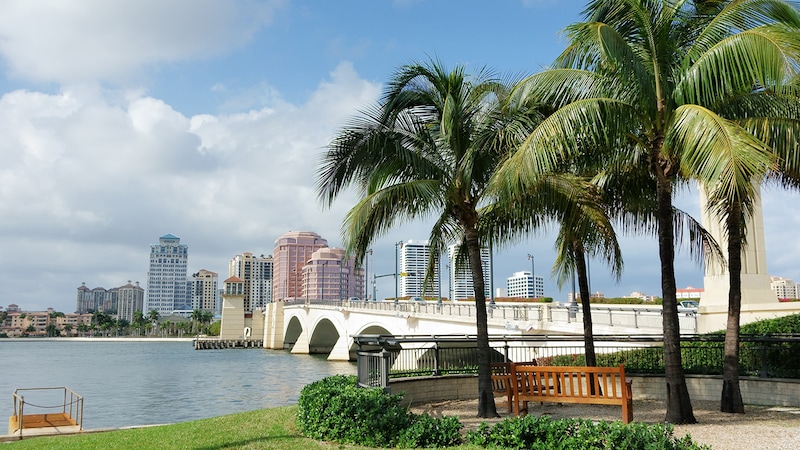What to know about using a credit card abroad

Quick insights
- You do not need to notify your credit card issuer when you travel abroad.
- Using a credit card with no foreign transaction fees could save you money while traveling.
- It may be helpful to confirm that your specific credit card type is accepted at your destination city or country.
Traveling abroad can be both exciting and stressful. One thing you don't want to worry about during your adventures is having access to money. Although you may need to bring some cash, one of the most convenient ways to make purchases abroad is by using a credit card—ideally one that offers travel rewards.
Credit cards are generally safer and easier to carry around with you as you hop in and out of cars or trains, explore a new city on foot or enjoy a new restaurant. In addition, many credit cards offer fraud protection in the event your card gets lost or stolen along the way.
To make the most of your next international travel experience, there are several things you should know about using your credit card abroad. Read on to learn more.
Do you need to notify your credit card company when you travel abroad?
No, you do not need to alert your credit card issuer when you travel. In fact, Chase no longer accepts travel notices. This is considered an outdated practice due to advancements in fraud detection technology.
As long as your credit card contact information is up to date prior to your travels, Chase can contact you should any issues arise. However, no other action is necessary prior to your trip.
Use a card with no foreign transaction fees
When you are traveling in a foreign country, your credit card purchases may incur foreign transaction fees. A foreign transaction fee is an extra charge from your credit card issuer that equals a percentage of every transaction you make abroad. Credit cards with foreign transaction fees typically charge an extra 3% to 5% for every foreign purchase.
However, there are some credit cards that do not have any foreign transaction fees. Some of them are even travel rewards cards. In this case, the purchases you were planning to make anyway while on your trip, such as flights, hotel stays and dining, can also earn you points.
Avoid dynamic currency conversion
Dynamic currency conversion is a credit card feature that allows you to make a purchase in a foreign country using the currency of your own country. The benefit of this feature is that it helps you understand the price you are paying without having to do the conversion.
However, this feature also allows for an inflated exchange rate and could include other added fees by the merchant, ultimately making the transaction more expensive. If you opt to pay with the local currency, your bank will deal with the conversion and may give you a better rate. If you're asked at the point of purchase whether you'd like to use USD or local currency, you may want to consider choosing local currency.
Confirm that your destination accepts your credit card
Check that your credit card type is accepted at your destination city or country. There are four main U.S. payment networks your card runs through: Visa, Mastercard, Discover and American Express. However, not all international merchants accept these same four networks.
Visa and Mastercard tend to be the most widely accepted throughout the world. If a business accepts credit cards, your Visa or Mastercard will likely work fine. The other two—American Express and Discover—do have a global footprint, but may be accepted at fewer merchants. If you have one of these cards, be sure to confirm you can use it on your trip or bring a backup card that is either Visa or Mastercard.
Know your card's travel benefits
Many credit cards provide a variety of travel protections you may not realize you have access to. Simply by using your credit card for travel purchases, you could be eligible for valuable coverage. Depending on your card, this could include travel protection benefits such as reimbursement for lost luggage, baggage delays or even cancelled flights.
It can be helpful to learn about all your card's benefits in the event you need to use them.
Use your card to access airport lounges
Some travel credit cards offer access to participating airport lounges. Check your card’s terms and conditions to see if this benefit is available to you. Additionally, it may be helpful to check whether your preferred airports have these types of lounges. Note that cards with travel benefits often have annual fees.
The bottom line
Credit cards can offer a range of relevant benefits and protections for traveling abroad. Knowing these features before you leave may empower you to take decisive action in case a delay or emergency arises.
In addition, choosing a card that earns you travel rewards and does not charge foreign transaction fees means you're maximizing the value of every dollar (or yen or euro or peso) you spend on your trip.



